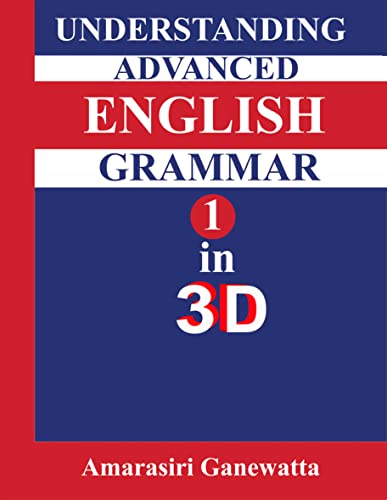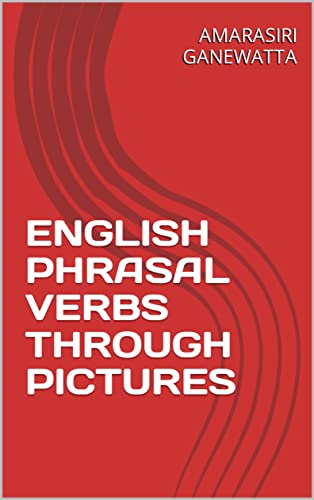When we examine English books written two or three hundred years ago, we see that the writers hadn’t taken any special care in separating paragraphs. But modern writers always try to present their thoughts as clusters in writing for the benefit of the reader. So the paragraph has become the main feature of modern writing. To write a good paragraph, we must learn to write a good sentence.
We use a sentence to say something about a thing. In other words, we use a sentence to make ourselves understood. The sentence may therefore be regarded as the basic unit of composition. If we wish to learn how to write a good paragraph and a good essay, we must learn how to write a good sentence.
Let us examine:
1. The form of the sentence
2. The length of the sentence
3. The qualities a good sentence should possess
There are two forms of sentences:
1. The periodic sentence
2. The loose sentence
The periodic sentence
In a periodic sentence the suspension of the full meaning continues until the end of the sentence is reached. We can’t stop anywhere in between.
e.g.
1. It was a curious little company that assembled to do honor to this old kindly bachelor- the two or three relatives that he possessed, and eight of his literary friends, most of them of a good age, and for the most part men of intellect, and one or two cases of world-wide reputation, and all a little uncomfortable in unwanted formal black.
(E.V. Lucas)
(N. B. Until we see the word ‘black’ we can never guess what sort of occasion it was. The word ‘black’ suddenly brings unbearable sorrow to the reader’s heart as if he himself attends the funeral of the great writer.)
2. When I read the several dates of the tombs of some that died yesterday, of some, six hundred years ago, I consider that great day when we shall all of us be contemporaries, and make our appearance together.
3. Not to know what manner of men our ancestors were, limits our understanding of what we ourselves are.
4. One of the most dangerous things which can happen to man is to have the ambition to undertake tasks which he has not the talents to perform.
The loose sentence
The principle of suspense is not observed in a loose sentence and most conjunctions can be omitted and still leaves a sentence grammatically complete.
e.g. The next morning we were again visited by Mr. Burehell, though I began, for certain reasons, to be displeased with the frequency of his return; but I could not refuse him my company and fireside. (Charles Dickens)
The Length of The Sentence
The Short Sentence
The short sentence has the merit of being clear and forcible. It is especially suitable when we want to express simple and direct ideas. But when we have complex ideas, we need long and complex sentences to express them. The power of simple sentence can be seen in the books written by great writers. If you study such books carefully, you can learn the technique of using short sentences forcibly.
Read the following extract and learn how forcibly short sentences are used to give the scene.
The stable clock struck the quarter past (two). The dog Balthasar stretched and looked up at his master. The thistledown no longer moved. The dog placed his chin over the sunlit foot. It did not stir. The dog withdrew his chin quickly, rose, and leaped on old Jolyon’s lap, looked in his face, whined; then, leaping down, sat on his haunches, gazing up. And suddenly he uttered a long, long howl.
But thistledown was still as death, and the face of his old master.
Summer – summer – summer ! The soundless footsteps on the grass.
-John Galsworthy-
I am afraid of everything, Arachchi; the jungle, the devils, the darkness. But, above all, of being hunted. Have you ever been hunted, Arachchi? No, of course you are not a hunter, and therefore have never been hunted. But, I know. It happens sometimes to the cleverest of us. The elephant, they say; but that I have never seen. But the buffalo; I have seen that – here – on this very track – before it was cleared – many years ago. The buffalo is stupid, isn’t he, little Arachchi? Very stupid; he does not see – he does not hear – he goes on wallowing in his mud. And they hunt him year after year – year after year – he does not know – he does not see them – he does not hear them. Do you know that? I know it-I am a hunter. Then – then having crept close they shoot him. It was near here. At first, crash – he tears away through the jungle, blood flowing down his side. He is afraid, very afraid – and in pain. But the pain brings anger, and with anger, anger, Arachchi, comes cunning. And now, Arachchi now comes the game, dangerous game. The young men laugh at it, but the wise hunter would be afraid. There he stood, do you see? – there – under that maiyilittan-tree, head down, very still. And the hunter — fool, fool — crept after him through the undergrowth: there was no track then. Ah, it was thick then: he could not see anything but the shrubs and thorns; he did not see the red eyes behind him nor the great head down. For the other was cunning now, cunning, and very angry. And when the hunter had gone on a little – just where you are now, Arachchi- then — do you hear. little Arachchi? — then, out and crash, he charged, charged, like this —’
Babehami had at first hardly listened, but the fury and excitement of Silindu had at last forced his attention. As Silindu said the last words, Babehami half stopped and turned his head: he just saw Silindu’s blazing eyes and foam on the corner of his lips: at the same moment he felt the cold muzzle of the gun pressed against his back. Silindu pulled the trigger and Babehami fell forward on his face.
(From ‘The Village in The Jungle’ by Leonard Wolf)
The Long Sentence
Read the following long sentences and see how the main idea is presented with several subordinate relevant ideas.
1.The philanthropist who visited the school presented a lot of books which were very valuable for learning science subjects to the new science library that was donated recently by the Old Boys’ Association.
2. He grieves more than is necessary who grieves before it is necessary.
3. Not to know what manner of men our ancestors were, limits our understanding of what we ourselves are.
4. The notice which you have been pleased to take of my labors, had it been early, had been kind; but it had been delayed till I am indifferent, and can’t enjoy it; till I am solitary, and can’t impart it; till I am known, and do not want it.
5. An old woman who had become blind called in a physician and promised him before witnesses that if he would restore her eye-sight, she would give him a most handsome reward, but that if he couldn’t cure her, and her malady remained, he would receive nothing.
6 One reason why history should be taught and studied much more than it is today, is that history is the key to our understanding of other peoples and states with whom we have now to co-operate.
Synthesis of Sentences
There are various ways of combining two or more simple sentences into one simple sentence.
(1) Using present participles
The thief saw the policeman. He ran away.
Seeing the policeman, the thief ran away.
(2) Using past participles
Having seen the policeman, the thief ran away.
(3) Using an absolute phrase
The sun went down. We left the seashore.
The sun having gone down, we left the seashore.
(4) Using a prepositional phrase with a noun
She is ill. She has fever.
She is ill with fever.
(5) Using a prepositional phrase with a gerund
The volunteers worked for many days. They didn’t sleep.
The volunteers worked for several days, without sleeping.
(6) Using a noun in apposition
Samuel Johnson was a great writer. He wrote the first English Dictionary.
Samuel Johnson, the great writer, wrote the first English Dictionary.
(7) Using an infinitive phrase
He went to the post-office. He wanted to buy some stamps.
He went to the post-office to buy some stamps.
(8) Using an adverb
He fought the enemy. He was fearless.
He fearlessly fought the enemy.
(9) As complex sentences
The rainy season came. The farmers prepared the paddy fields.
The farmers prepared the paddy fields after the rainy season.
1. When the thief saw the policeman, he ran away.
2. After the thief had seen the policeman, he ran away.
3. When the sun went down, we left the seashore.
4. She is ill because she is suffering from fever.
5. The volunteers worked for several days although he had no time to sleep.
6. Samuel Johnson, who was a great writer, wrote the first English Dictionary.
7. He went to the post-office because he wanted to buy some stamps.
8. He fought the enemy as he was fearless.
9. After the rainy season had come, the farmers prepared the paddy fields.
What is a paragraph?
The basic unit of an essay is a paragraph. To define the paragraph is not an easy task. The paragraph is generally distinguished from the sentence and from the whole composition. Yet sometimes one word stands on the printed page as a paragraph, as for example in a dialogue each speech is a paragraph; and sometimes a whole composition is only one paragraph in length. There is a further distinction in newspaper writing. The narrow column of the newspaper requires arbitrary paragraphing to help easy reading. When we consider all this, there are various kinds of paragraphs, each kind having its special purpose.
When learning to write essays or compositions, we should clearly understand what a paragraph is and how to write a good paragraph. In a paragraph, sentences are combined to develop a unit of thought. and it can be called the smallest piece of literary discourse. Words state. Sentences express ideas. Whole composition develops a thesis or idea the writer wants to set forth.
The paragraph generally has the following characteristics:
1. The visual sign of a paragraph is indentation.
2. A paragraph is usually longer than one word.
3. A paragraph is generally longer than a single sentence but a long sentence with relevant subordinate sentences may serve as a paragraph if it fulfills the other requirements.
4. A paragraph generally develops an idea.
The paragraph is comparatively modern unit of writing. When you read books printed two hundred years ago, you will find paragraphing to be haphazard and sometimes without any indentation for many pages. But modern writing has given a very special place to the paragraph because it helps the reader to grasp ideas more easily. The reader can conveniently keep track of the ideas presented by the writer.
Some of the important reasons for paragraphing are:
1. Clarity of ideas presented.
2. Ease in grasping the ideas
3. Pauses to help mastery of the contents.
4. Pacing in the assimilation of material.
5. Order in following the author’s thoughts.
6. Guides to the relationship among ideas.
7. Emphasis to the relative importance of ideas.
Now read the following three paragraphs carefully and see whether all the features of a paragraph discussed above appear in these paragraphs.
1. The most defamed institution in all the world is that of the mother-in-law. And, surprisingly enough, she is defamed for the very reasons she should be praised. Why is the mother-in-law defamed? It is easy to give three specific reasons, each actually a very good reason for heaping praise on the head of this much-reviled person. First of all, she is defamed because she easily finds fault with the mate of her off-spring. No first-year bride, no newly instituted “head of household” wants to accept her criticism, for in the early bloom of marriage one not only avoids finding fault in one’s mate but avoids those who wish to aid in this unpleasant task. Secondly, she gives advice—on the care and feeding of husbands, or wives, and certainly of children; on buying furniture; on handling money—on practically everything on which advice from one outside the tight circle of the new family is not wanted. And thirdly, she comes to visit. But the mother-in-law, God bless her, finds fault with the mate only because she wants to improve him or her, gives advice because she has the requisite experience for doing so, and comes to visit so that she can perform the functions of critic and adviser. If these reasons were clearly understood by the young in marriage, the defamation would soon cease—even though the visits would, I suppose, continue to seem overlong.
2. Above the ruined city lies its lank, one of the lowliest things in the world. The waters are very blue, and in the far distance, across a plain where men are rarer than bears, the peaks and ramparts of the mountain ranges tower into the sky to a height of six thousand or more, they too are vivid blue, but a different blue from the water. To walk round the tank may take two hours, or three if it be very full, and even now one is sure to see crocodiles there; but the most delightful part of it is in the forest of red lotuses, so full of birds that their voices mingle in a/clatter like that of a children’s playground.—John Still.




